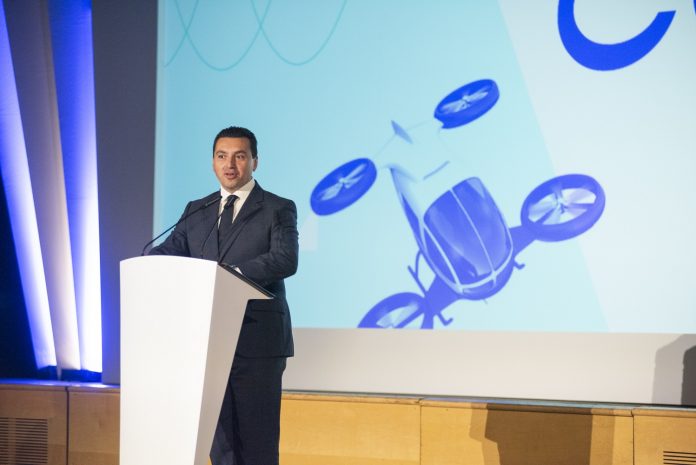As a nation which holds the aviation industry at its core, Malta will continue to foster growth and emphasise the need for a sustainable future. The fact that Malta now ranks second in the world and first in Europe, with a score of 95, in the Cape Town Compliance Index is testament to this. This clearly demonstrates the robustness of our legislative framework which will continue to serve as the primary foundation for sustainable growth during the years to come.
This was announced by Minister for Transport, Infrastructure and Capital Projects Aaron Farrugia whilst addressing the Malta Aviation Conference & EXPO (MACE).
MACE is an international aviation conference held in Malta every year, attracting delegates from all over the world. It is a platform for investors and other aviation professionals to meet with local service providers working in the aviation industry.
The Cape Town Convention Compliance Index, developed by the Aviation Working Group (AWG), evaluates state compliance with the Convention on International Interests in Mobile Equipment and Aircraft Protocol. The index demonstrates the AWG’s assessment of the likelihood of compliance with legal obligations based on the input from more than 200 law firms around the world and a rigorous methodological process.
The aviation industry has continued to experience robust expansion and garners international interest. There are currently more than 820 aircrafts registered on the national register, while 47 Air Operator Certificates (AOCs) have been issued to various airlines. Aviation, with its annual contribution of €600 million towards our economy and the transport of millions of passengers, has long been a fundamental pillar for the prosperity of our country.
Our nation’s aviation industry will continue to develop as a result of several crucial projects. Among the most significant of these projects is the unprecedented investment being made at the Malta International Airport, where €175 million is planned for the next five years, with €39 million being spent this year. The first air link will be established between Malta and Gozo, as well as between Gozo and other countries via the Gozo airfield project. This further builds upon the government’s vision outlined in Malta’s first national aviation policy, announced earlier this year, in which a number of measures are designed to create new opportunities for this sector to generate new economic activity. Furthermore, Malta will continue to have a strong national airline with profitable and sustainable operations that provides crucial connectivity for the Maltese islands.
Minister Aaron Farrugia emphasised the need for our nation to further strengthen its competitive edge. He explained how this will only happen if the industry continues to innovate and spur change while not being burdened with complex and unnecessary regulations that hinder its operation.
“I believe in a competitive market in which businesses and airlines can set their prices in accordance with operating expenses and the current market demand. At the EU Council of Ministers Meeting, we will continue to resist the demands of other European countries that are asking for the introduction of mechanisms to regulate fare prices. Such positions continue to make Malta an attractive business destination because the industry knows full well that it can collaborate with the Maltese government. Through a robust legislative framework and an agile authority, we ensure that our nation remains a jurisdiction of choice and not one of convenience,” concluded Minister Farrugia.
In a similar vein, Jonathan Borg, Transport Malta’s Chief Executive Officer, stated that the authorities’ goal is to continue expanding by attracting more businesses to Malta.
Captain Charles Pace, the General Director of Civil Aviation (CAD), reaffirmed that the industry’s response demonstrates that the CAD is achieving its goal of being a firm, fair, and pragmatic regulator.
Photo: MTIP










